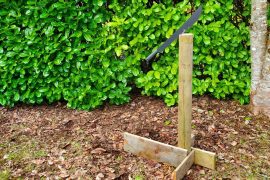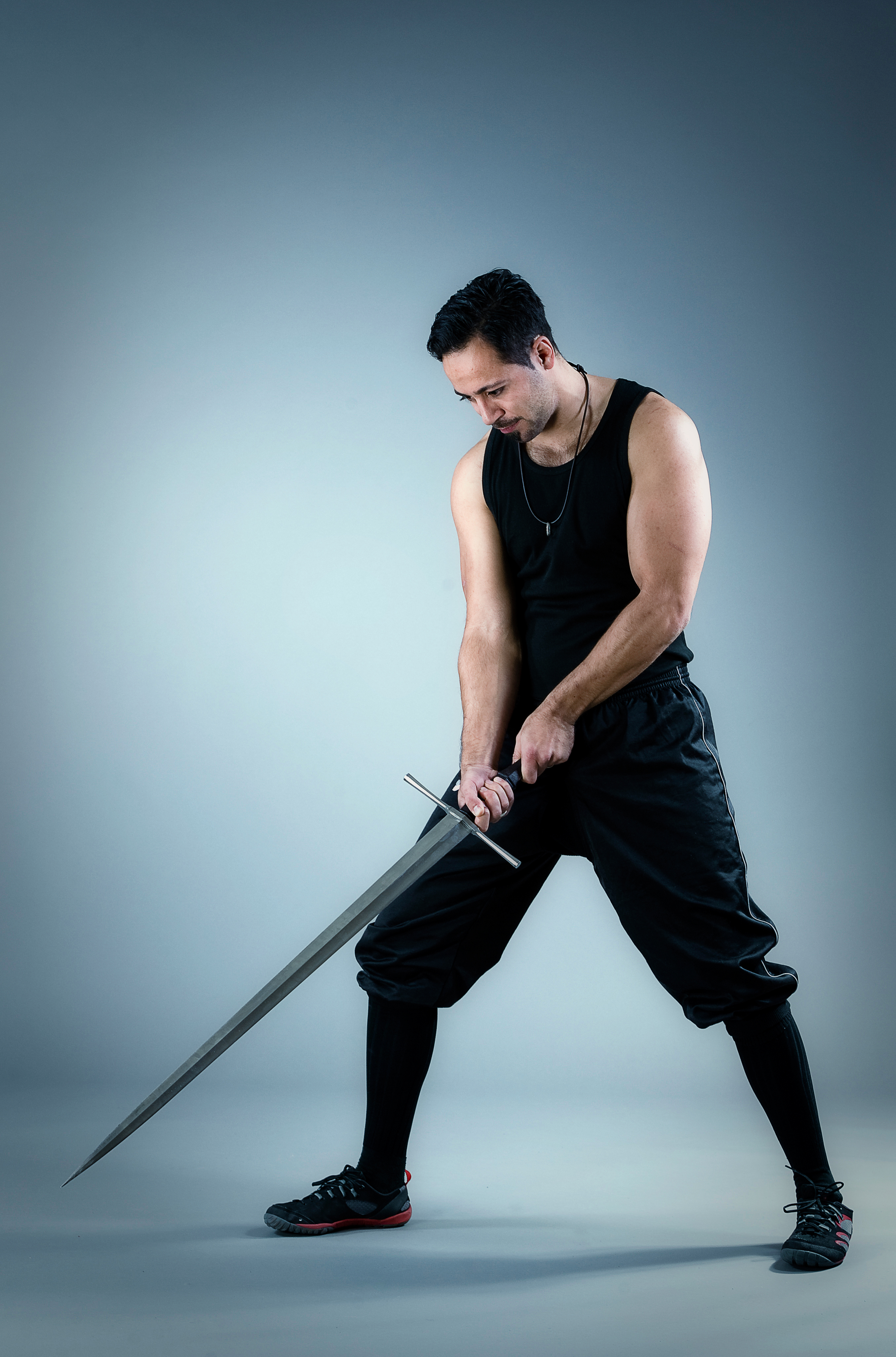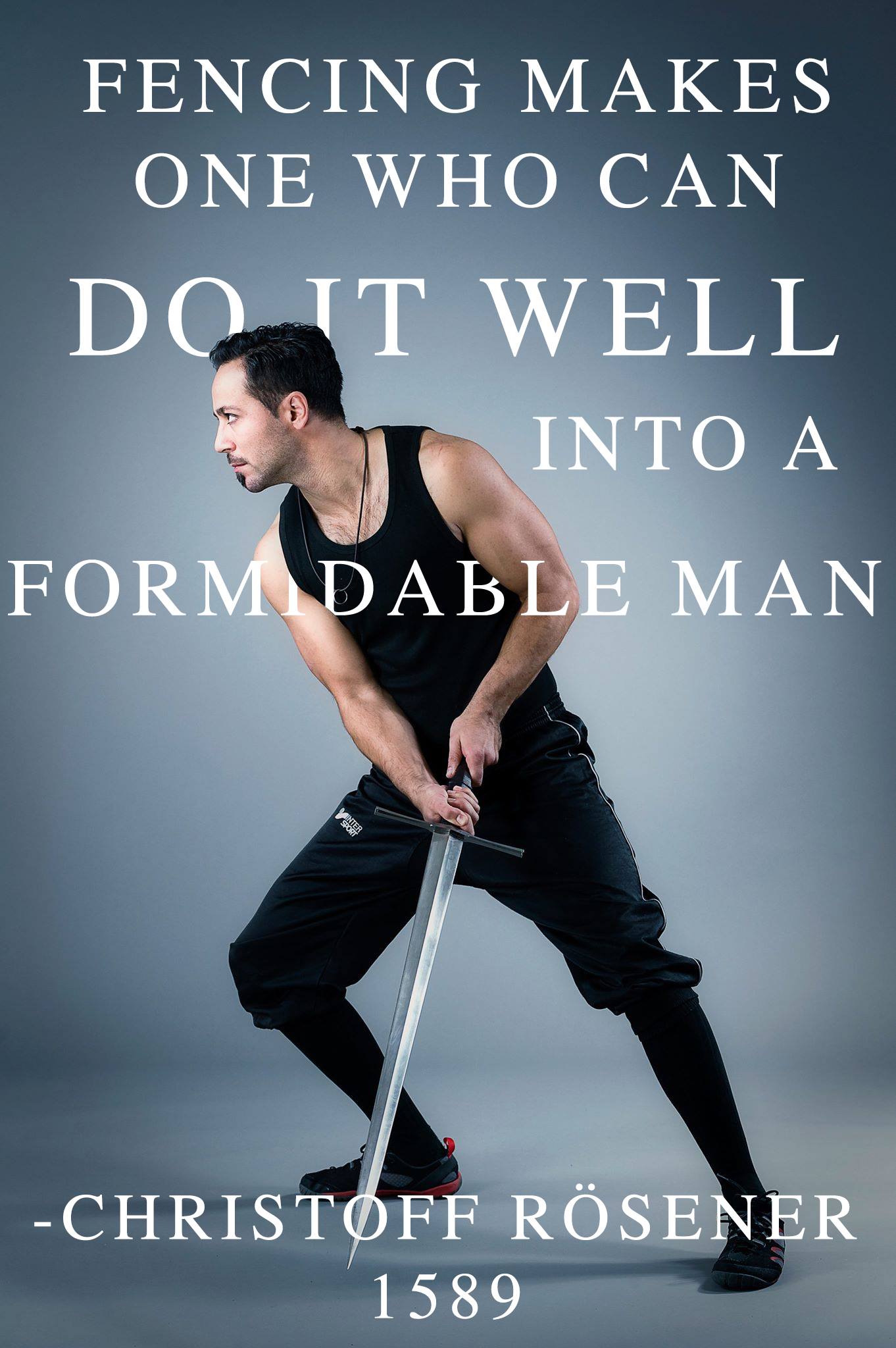Clubs have different rules for how you should conduct yourself in the training hall and salle. But some things are just universal or at least should be. Here are a few rules we believe should be part of all codes of conduct, and that you should adhere to when visiting another club. For more reading on the subject, please look at the excellent articles by Maestro Jeannette Acosta-Martinez. You will find them here: Part I and Part II
-
Be civil
It goes without saying that you should be friendly and respectful to the leaders, instructors and other students. If you are visiting, introduce yourself with a handshake and follow the rules of the club. Beyond that, it is also prudent to avoid talking about sensitive topics or to use foul language, especially if there are children around.
-
Saluting and formal conduct
Always make sure to properly greet your instructor and your opponents. This usually means that you greet the instructor when he or she has presented the class and at the end of the class, as well as the opponent before and after each bout. The traditional way of saluting is to do it without the mask (this however varies), but with two handed weapons this is sometimes disregarded due to having heavier gear, at least before the bout. After the bout, you should also remove the glove and shake hands or hug your opponent if you know them well. Particularly in fencing, shaking hands is both symbolic and particularly fitting – you do it with the weapon hand to show that you have no ill-intent. Sport fencers do it with the non-weapon hand, which somewhat defeats the underlying idea of a handshake, but their reasons is that they don’t wear a glove on that hand.
-
Your gear and hygiene
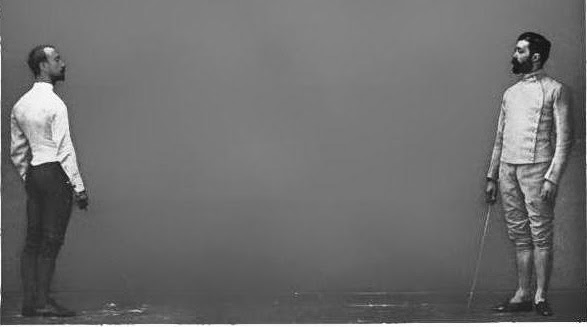
From Manrique’s Fencing Foil, 1920
Keeping your gear in good condition is a safety issue. Make sure that you check it regularly to ensure that there are no risks with using them, for you or your training partners. The mask is especially important since it can have hidden damages under a mask cover.
You should also make sure that your gear is clean and doesn’t stink. Especially when wrestling, make sure that you are clean, that you gear is washed between every training session, that you remove earrings and other jewellery, and that you trim your nails.
If you are borrowing gear, make sure to ask first. Put it back in the same condition you got it.
-
During instruction
The instructor is there to teach all students and he or she has an overview and a bigger plan for the training. So, when the instructor speaks, you should listen and not interrupt. Ask questions by raising your hand. During practise, talk as little as possible and heed the call of the instructor. When listening, stay orderly and focused and keep your weapon in check by pointing the tip upwards and rest the blade on your shoulder. Never put the tip on the ground, instead you can place it on your foot if you are resting or talking to other students during a break. [Lee Smith from Canadian club Blood & Iron has pointed out that this is actually a bad habit if you are accustomed to using sharps as well, since you may do it with a sharp without thinking about it].
Respect your training partner by being attentive when receiving the instruction so that you can do your part in drills. Do not discuss the ins and outs of each technique, instead focus on doing it as many times as possible. Certainly, don’t argue about stuff or talk about some half-related thing or interpretation you have heard online.
If you are a senior student, you may be asked to help out in teaching. If you are not asked to help out, then don’t, it’s better that you focus on doing drills. You may be at a level where you can perform a technique at a certain level, but it’s not a good idea for you to correct the other student’s techniques. It can be confusing for your training partner, so you should leave it to the instructor unless being told to help out. Quite often, the amount of information that a beginner has to take in is already overwhelming, getting more instruction isn’t going to help.
-
Sparring and training
In all sports, fair play is key for participation and a foundation for a good practise session or competition. Before you spar make sure that you go at the same level of speed and hardness and adapt it to the level of the least experienced fencer. If you are the senior student, you have more responsibility to make sure that a sparring session does not get out of hand and you should instruct your training partner if they go too hard, rather than getting back at them. Also, tell your opponent if you are lacking any protective gear or have injuries they should know about.
When you receive a blow, always acknowledge it. And if it is particularly well done, why not give your opponent a salute in recognition? When you are getting too tired, and you have no set amount of exchanges or a time limit, then offer to go three more exchanges – giving the opponent a heads up.
Of course, always keep emotions, especially anger, in check. You should never throw your gear or make gestures that can be seen as aggressive or insulting.
-
Help out afterwards
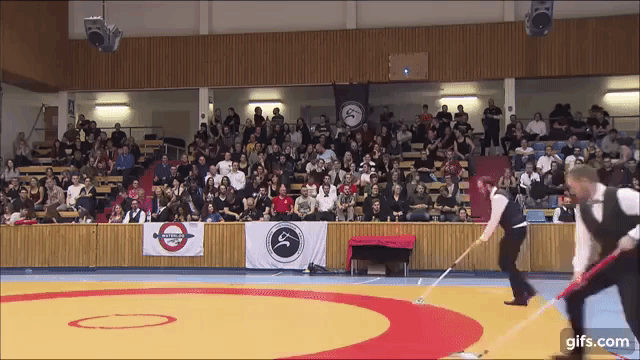
When you are done fencing, make sure that you help clean up and sweep the floors. Don’t let gear lay around. Take pride in keeping a neat and orderly salle!
If you are visiting and just got a free class before heading out to eat and drink, why not pay the instructor’s beer? Historically, many fencing guilds had regulations for who bought beer. A topic we are sure to return to!
If you have any tips on good code of conduct, leave a comment!

